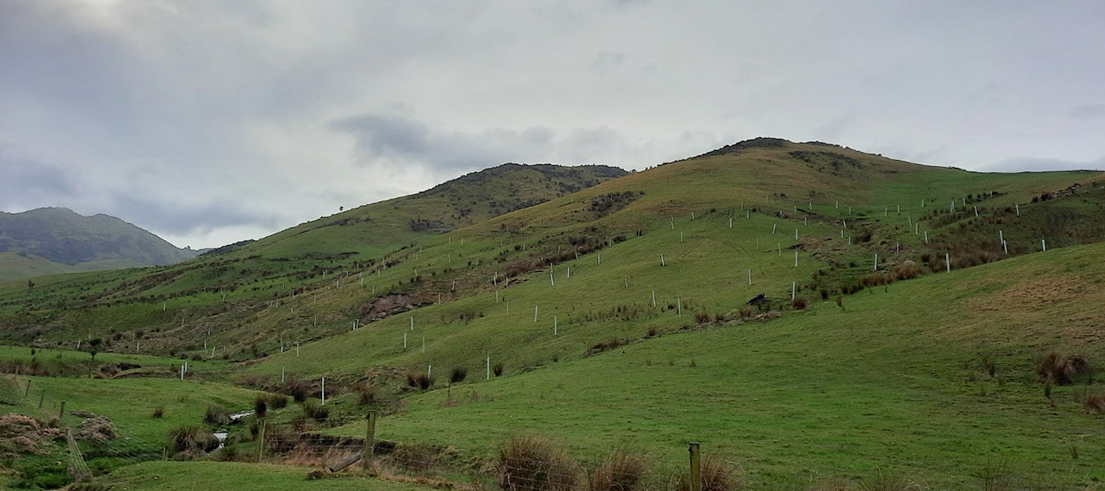
Farmer thankful for soil conservation support
Support from our Soil Conservation and Revegetation (SCAR) Programme has enabled a North Canterbury farmer to address erosion issues on his farm.
The SCAR Programme aims to reduce the amount of sediment washed into waterways by stabilising eroding land with poplar and willow poles. The roots from the trees connect and lock in the soil, helping prevent potential slips.
Poles to help resolve slippage
Duncan Rutherford, a sheep, beef and dairy farmer in Culverden received 150 poplar poles to help address some steep, wet sites on his property where the land was beginning to show signs of slippage.
With help, he spent a couple of days installing the poles - their extensive root systems helping to bind soil on stream banks and hillsides. They will establish quickly, have high evapotranspiration (an important part of the water cycle) during the growing season, and be tolerant of seasonal changes in moisture levels.
Poplar and willow poles being used are sterile which means they can't spread. They are a tool to stabilise the eroding land primarily in a grazing setting. If the landowner wanted to change the land use, native plants could be planted under the established trees, followed by removal of the poles at a later date.
In the grazing setting, native plants used would likely be eaten and their roots don't grow fast enough to stabilize the land. The programme also provides funding to fence off erosion-prone land that has native plants on it. If there's no grazing/stock, native plants can naturally regenerate and there is some funding for native revegetation.
Duncan's experience
Duncan said he heard about the programme through word of mouth.
"I then got in touch with Sam Thompson at Environment Canterbury, and he arranged the order and delivery for me. It's been a really good and easy process," he said.
Duncan has already placed an order with us for some more poles next year.
"There's more land on the property which would benefit from the poles," he said.
"The poles obviously help with stabilising the land, but they also will provide good stock shelter and they look nice too - there's no disadvantage in my eyes," he added.
Ordering process
Funding is available for poles - if you are interested in planting poles on erosion-prone land in North Canterbury, please contact Soil.Con@ecan.govt.nz for more information. Orders must be made by 2 May annually.
Further information
For more information on the SCAR programme go to the Baynons nursery products page.
